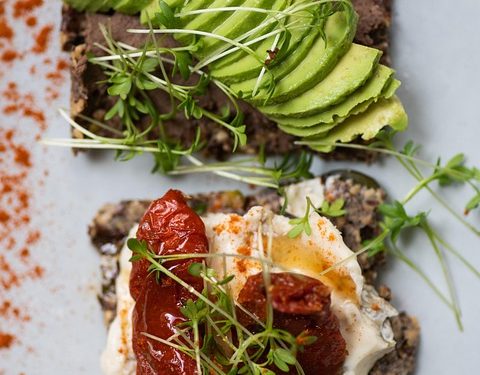Keto Meal Plan: Your Easy 7-Day Guide
Embarking on a ketogenic (keto) diet can feel overwhelming, but with a solid plan, you can navigate this high-fat, low-carb lifestyle with confidence. This 7-day keto meal plan provides a simple, delicious roadmap to help you achieve your health goals. We’ll cover everything from breakfast to dinner, plus snack ideas, and essential tips to ensure your success.
What is the Keto Diet?
The keto diet is a high-fat, very low-carbohydrate diet that forces the body to burn fats rather than carbohydrates. This process, called ketosis, results in the production of ketones, which the body uses for energy. By significantly reducing carbohydrate intake (typically below 50 grams per day), you prompt your body to switch its primary fuel source from glucose (from carbs) to fat.
While primarily known for weight loss, the keto diet has also been explored for its potential benefits in managing epilepsy, improving blood sugar control in individuals with type 2 diabetes, and potentially offering neuroprotective effects.
7-Day Keto Meal Plan
This meal plan provides approximately 20-30 grams of net carbs per day. Feel free to adjust portion sizes and meal choices based on your individual needs and preferences. Remember to stay hydrated by drinking plenty of water throughout the day.
Day 1
- Breakfast: Scrambled eggs with cheese and avocado (Net Carbs: ~5g)
- Lunch: Tuna salad with mayonnaise and celery served over lettuce (Net Carbs: ~7g)
- Dinner: Baked salmon with asparagus and a side of cauliflower mash (Net Carbs: ~8g)
- Snack: Handful of almonds (Net Carbs: ~4g)
Day 2
- Breakfast: Keto smoothie with spinach, protein powder, almond milk, and berries (Net Carbs: ~8g)
- Lunch: Leftover baked salmon and asparagus (Net Carbs: ~8g)
- Dinner: Ground beef stir-fry with broccoli, bell peppers, and a low-carb soy sauce alternative (Net Carbs: ~9g)
- Snack: Cheese sticks (Net Carbs: ~1g)
Day 3
- Breakfast: Bulletproof coffee (coffee blended with coconut oil and butter) (Net Carbs: ~0g)
- Lunch: Chicken salad made with mayonnaise, walnuts, and celery served in lettuce wraps (Net Carbs: ~6g)
- Dinner: Pork chops with sautéed spinach and mushrooms (Net Carbs: ~7g)
- Snack: Pork rinds (Net Carbs: ~0g)
Day 4
- Breakfast: Keto pancakes made with almond flour and eggs, topped with berries and whipped cream (Net Carbs: ~10g)
- Lunch: Leftover pork chops with sautéed spinach and mushrooms (Net Carbs: ~7g)
- Dinner: Steak with a side of green beans sautéed in garlic butter (Net Carbs: ~5g)
- Snack: Hard-boiled egg (Net Carbs: ~1g)
Day 5
- Breakfast: Scrambled eggs with bacon and cheese (Net Carbs: ~3g)
- Lunch: Burger (no bun) with cheese, avocado, lettuce, and tomato (Net Carbs: ~8g)
- Dinner: Chicken thighs baked with lemon and herbs, served with roasted Brussels sprouts (Net Carbs: ~9g)
- Snack: Macadamia nuts (Net Carbs: ~2g)
Day 6
- Breakfast: Keto yogurt with berries and chia seeds (Net Carbs: ~9g)
- Lunch: Leftover chicken thighs and roasted Brussels sprouts (Net Carbs: ~9g)
- Dinner: Shrimp scampi served over zucchini noodles (zoodles) (Net Carbs: ~7g)
- Snack: Celery sticks with cream cheese (Net Carbs: ~2g)
Day 7
- Breakfast: Keto frittata with vegetables and cheese (Net Carbs: ~6g)
- Lunch: Tuna salad lettuce wraps (Net Carbs: ~7g)
- Dinner: Salmon patties made with almond flour and served with a side salad with vinaigrette dressing (Net Carbs: ~10g)
- Snack: Keto fat bombs (made with coconut oil, nut butter, and sweetener) (Net Carbs: ~2g)
Keto-Friendly Foods
Understanding which foods are keto-friendly is crucial for success. Here’s a breakdown:
- Fats: Avocados, olive oil, coconut oil, butter, ghee, mayonnaise (high-fat versions)
- Proteins: Meat (beef, pork, chicken, lamb), fish (salmon, tuna, mackerel), eggs, shellfish
- Vegetables: Leafy greens (spinach, kale, lettuce), cauliflower, broccoli, zucchini, asparagus, Brussels sprouts, bell peppers
- Dairy: Cheese, heavy cream, unsweetened almond milk, Greek yogurt (full-fat, plain)
- Nuts and Seeds: Almonds, walnuts, macadamia nuts, chia seeds, flax seeds
- Fruits (in moderation): Berries (strawberries, blueberries, raspberries)
Foods to Avoid on Keto
These foods are high in carbohydrates and should be limited or avoided:
- Grains: Bread, pasta, rice, cereal
- Sugary Foods: Candy, soda, juice, pastries, ice cream
- Starchy Vegetables: Potatoes, corn, peas
- Most Fruits: Bananas, apples, oranges (berries are okay in moderation)
- Legumes: Beans, lentils
- Low-Fat Products: Often high in added sugar to compensate for the lack of fat.
Tips for Keto Success
Following these tips can make your keto journey smoother and more sustainable:
- Track Your Macros: Use a food tracking app to monitor your fat, protein, and carbohydrate intake. This ensures you stay within your keto macros.
- Stay Hydrated: Drink plenty of water throughout the day. Aim for at least 8 glasses.
- Electrolyte Balance: Keto can cause electrolyte imbalances. Consider supplementing with sodium, potassium, and magnesium.
- Plan Your Meals: Planning ahead helps you avoid impulsive food choices and ensures you have keto-friendly options available.
- Listen to Your Body: Adjust your diet based on how you feel. If you’re experiencing side effects, consult with a healthcare professional.
- Be Patient: It takes time for your body to adapt to ketosis. Be patient and consistent, and you’ll start to see results.
- Read Labels Carefully: Always check the nutrition labels on packaged foods to ensure they are low in carbohydrates and free of added sugars.
Dealing with the Keto Flu
The “keto flu” is a common set of symptoms experienced when first starting the keto diet. These symptoms can include fatigue, headache, brain fog, and irritability. It’s caused by the body adjusting to using fat for fuel and can be mitigated by:
- Staying Hydrated: Drink plenty of water.
- Electrolyte Supplementation: Replenish electrolytes, particularly sodium, potassium, and magnesium.
- Sufficient Fat Intake: Ensure you’re consuming enough healthy fats.
- Gradual Transition: Gradually reduce carbohydrate intake rather than making a sudden change.
Variations and Customization
This 7-day keto meal plan is a template. Feel free to adjust it based on your preferences and dietary needs. Here are some ideas:
- Vegetarian Keto: Focus on plant-based fats and proteins, such as avocados, nuts, seeds, tofu, and tempeh.
- Dairy-Free Keto: Use coconut milk, almond milk, and other dairy-free alternatives.
- Budget-Friendly Keto: Choose affordable protein sources like eggs and canned tuna. Buy frozen vegetables to save money and reduce waste.
Beyond the 7-Day Plan
Once you’ve completed the 7-day plan, you can continue to follow it or create your own meal plans based on your favorite keto-friendly recipes. The key is to maintain a high-fat, low-carbohydrate intake and listen to your body’s signals.
Conclusion
The keto diet can be a powerful tool for weight loss and improved health. This 7-day keto meal plan provides a solid foundation for getting started. By following the meal plan, understanding the principles of keto, and making adjustments based on your individual needs, you can successfully navigate this lifestyle and achieve your health goals. Remember to consult with a healthcare professional before starting any new diet, especially if you have any underlying health conditions.
FAQs About Keto Meal Plans
Here are some frequently asked questions about keto meal plans:
What if I’m still hungry after a keto meal?
Increase your fat intake. Healthy fats are very satiating. You can add more avocado, olive oil, or coconut oil to your meals. Also, ensure you’re drinking enough water, as thirst can sometimes be mistaken for hunger.
Can I drink alcohol on the keto diet?
Some alcoholic beverages are lower in carbs than others. Clear spirits like vodka, gin, and tequila (without sugary mixers) are generally okay in moderation. Dry wines (like Sauvignon Blanc or Pinot Grigio) are also lower in carbs than sweet wines. Avoid beer and sugary cocktails.
How long does it take to enter ketosis?
It typically takes 2-7 days to enter ketosis, depending on your individual metabolism, activity level, and carbohydrate intake. You can use ketone test strips (urine or blood) to check your ketone levels.
Is the keto diet safe for everyone?
The keto diet is generally safe for most people. However, it may not be suitable for individuals with certain medical conditions, such as kidney disease, liver disease, or pancreatitis. Consult with a healthcare professional before starting the keto diet, especially if you have any underlying health concerns.
Can I exercise on the keto diet?
Yes, you can exercise on the keto diet. However, you may experience a decrease in performance initially as your body adapts to using fat for fuel. Focus on low-intensity exercises at first and gradually increase the intensity as your body adapts. Consider supplementing with electrolytes to improve performance and reduce fatigue.
What are some common mistakes people make on the keto diet?
Common mistakes include:
- Not tracking macros.
- Not drinking enough water.
- Not consuming enough electrolytes.
- Eating hidden carbs (found in sauces, dressings, and processed foods).
- Giving up too soon.
How do I calculate net carbs?
Net carbs are calculated by subtracting the grams of fiber and sugar alcohols from the total grams of carbohydrates: Net Carbs = Total Carbs – Fiber – Sugar Alcohols.
Where can I find more keto recipes?
There are many resources available online, including keto recipe websites, blogs, and cookbooks. Search for “keto recipes” on Google or Pinterest to find a variety of delicious and easy-to-follow recipes.
How do I know if I’m in ketosis?
You can monitor your ketone levels using ketone test strips (urine or blood) or a breathalyzer. Common signs of ketosis include increased thirst, frequent urination, bad breath (keto breath), and reduced appetite.
What if I cheat on the keto diet?
If you cheat on the keto diet, you may be knocked out of ketosis. It may take a few days to get back into ketosis. Don’t beat yourself up over it. Just get back on track as soon as possible by following your meal plan and tracking your macros.












